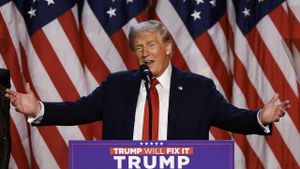AstraZeneca has officially canceled its ambitious plan for a £450 million investment to develop a vaccine manufacturing plant at its existing facility in Speke, Merseyside. This decision marks a major setback for local economic prospects and has stirred significant political repercussions.
The announcement reverses the optimism expressed last year when then-Chancellor of the Exchequer Jeremy Hunt revealed plans for the investment during his March budget speech, emphasizing it as part of efforts to solidify the UK's life sciences sector and improve national health preparedness. At the time, Hunt heralded the move as a major vote of confidence, with local leaders like metro mayor Steve Rotheram celebrating the anticipated jobs and economic boosts it promised.
"This was going to be groundbreaking for Liverpool and our local economy," Rotheram reflected upon learning of the cancelation. The planned facility was expected to bolster both the local jobs market and the UK’s overall capacity for vaccine production.
Unfortunately for local officials, the situation took a turn when AstraZeneca explained its withdrawal, citing multiple factors influencing the decision. A spokesperson clarified, “Several factors have influenced this decision, including the timing and reduction of the final offer compared to the previous government’s proposal.” This evidently raised concerns over whether the terms were sufficient to proceed with such significant investment.
The original proposal included substantial government support, comprising £70 million from Hunt's administration and £20 million from the UK Health Security Agency earmarked for research and development. The newly elected Labour government, under the leadership of Prime Minister Keir Starmer, offered less financial backing—reportedly cutting the government grant offer to £40 million—leading to tensions between AstraZeneca and the government.
This unraveling has prompted strong reactions from various political figures. Shadow Business Secretary Andrew Griffith expressed his discontent, stating, "There’s no vaccine for incompetence. The Labour government has fumbled this deal with AstraZeneca, one of the UK’s largest companies, pivotal to our life sciences sector." Griffith’s comments are indicative of broader criticisms facing the Labour administration as they navigate economic recovery and growth.
Conversely, Labour representatives have countered the accusations, arguing, “After dithering for years, Jeremy Hunt was so desperate for a budget announcement he offered a deal with no regard to value for money.” They assert their commitment to prudent spending of taxpayers’ money, underscoring their strategic approach to attracting investment and highlighting the previous administration's handling of public funds.
Beyond the immediate political fallout, the canceled investment has raised alarms about the UK’s capacity to produce vaccines domestically—an issue underscored by former Health Secretary Matt Hancock, who recently warned of the country’s 'weak' manufacturing capabilities. Hancock echoed the need for enhanced local production capabilities, deeming them “critical” for future pandemic preparedness.
The Society of Chemical Industry's CEO, Sharon Todd, also criticized the government’s approach, remarking, “If life sciences are going to be a major pillar of the UK's new industrial strategy, then bold steps forward are needed.” Todd's comments signal concerns over the UK’s dwindling appeal for foreign investment compared to neighboring countries, reinforcing the significance of AstraZeneca's cancellation.
The existing AstraZeneca facility remains operational, with about 450 employees currently working there, producing the company’s flu vaccines. The company has committed to maintaining this part of its operation, ensuring job security for the present workforce amid the broader uncertainties surrounding new investment.
Moving forward, local authorities aim to salvage relationships with AstraZeneca to regroup and possibly engage in renewed discussions. Rotheram stated his intention to work alongside government officials with the aspiration of engaging AstraZeneca again for future projects. The pressure is mounting as local leaders realize the urgency of revitalizing investment prospects to stimulate economic growth within the region.
Overall, AstraZeneca's withdrawal serves as both a setback for the Speke facility and a broader cautionary tale for the UK's efforts to position itself competitively within the global life sciences arena. The episode has highlighted the delicate balance between government support and corporate investment, raising pivotal questions about future capabilities and strategies within the industry.
The failure to secure the vaccine plant deal not only reflects on the political dynamics within the UK but also serves as a stark reminder of the high stakes involved when nurturing the country's health security and economic future.



